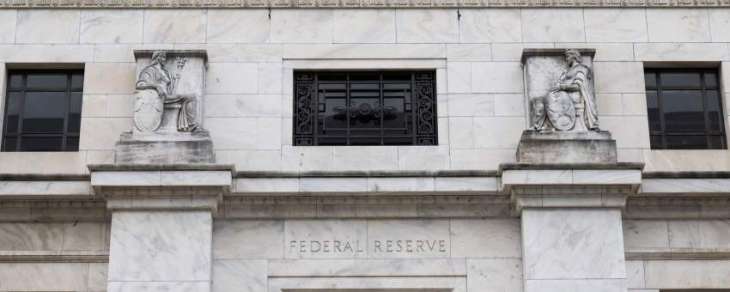The Federal Reserve decided to skip a rate hike in June after 10 increases over the past 15 months, cautioning that it could resume its monetary tightening in July if inflation warrants
WASHINGTON (Pakistan Point News / Sputnik - 15th June, 2023) The Federal Reserve decided to skip a rate hike in June after 10 increases over the past 15 months, cautioning that it could resume its monetary tightening in July if inflation warrants.
"As we watch, we'll see what's happening," Fed Chairman Jerome Powell told reporters on Wednesday after the central bank's policy-making Federal Open Market Committee, or FOMC, decided to hold key lending rates at a peak of 5.25%.
"We have responsibility for financial stability as well, and that is a factor that we're always going to be considering," Powell said, referring to market fears that the FOMC may have overdone rate hikes with a 500-basis point increase from a pandemic-era standing of just 25 basis points.
But the Fed chair was resolute in getting inflation back to the central bank's target and said more rate hikes could be in order to achieve this.
The US Consumer Price Index, the broadest gauge for US inflation, grew by 4% in the year to May, expanding at their slowest pace in more than two years. The Personal Consumption Expenditures Index, the Fed's preferred inflation gauge, meanwhile, grew by 4.4% in the year to April.
Both are, however, way above the Fed's long-term inflation target of just 2% per annum.
Conditions that permit more amenable inflation in the United States "are coming into place," Powell said, adding: "That would be growth meaningfully below trend. It would be a labor market that's loosening. But the process of that working on inflation is going to take some time."
The labor market is the juggernaut of the US economy, adding hundreds of thousands of jobs a month over the past three years after initially losing 20 million to the COVID-19 pandemic.
While policy-makers the world over typically celebrate on seeing good jobs numbers, the Fed is in a different predicament. The central bank wishes to see an easing of conditions that are a little "too good" now for the economy's own good - in this case, unemployment at more than 50-year lows and average monthly wages that have grown without stop since March 2021.
Such job security and earnings have cushioned many Americans from the worst price pressures since the 1980s and encouraged them to continue spending, further feeding inflation.
The Fed has a mandate of ensuring "maximum employment" through a jobless rate of 4% or below, and keeping inflation "manageable". The last was a task easily achieved before the COVID-19 breakout, when prices expanded less than 2% a year. The pandemic and the trillions of dollars of relief spending by the government, however, triggered runaway inflation since mid-2021.
Powell said the Fed's policy-makers were almost unanimous that more rate hikes may be needed to keep a handle on inflation.
"Nearly all participants think further rate changes will be necessary," he said, referring to members of the FOMC.
The Fed's next rate decision is on July 26 and Powell refused to give any hints as to what the FOMC might decide then.
"I want to stress... that the committee decision made today was only about this meeting," he said, referring to the June pause on rates. "We didn't make a decision about July."
For a guide, he said: "We want to do... minimum damage we can to the economy. Of course it's great to see wage increases, particularly for people at the lower end of the income spectrum. But inflation hurts those same people more than anyone else. People on a fixed income are hurt the worst and fastest by high inflation. Getting inflation back down to 2%... benefits everyone."




